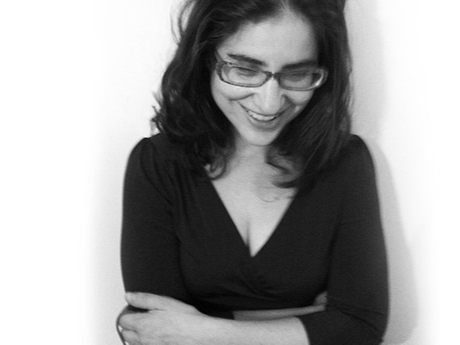Poetry & Democracy
Poetry & Democracy

Twice now, a man has acknowledged the general success of my work (success in terms of achievement of my poems, not the achievement of my poems in the world) before stating that he didn't feel that my poems were "written for [him]." When I pressed these men to explain for whom my work might be written, the answer, when awkwardly and roundaboutly gotten to, was basically "not men."
Several years ago, I organized a project between VIDA and Girls Write Now that asked the girls to count their NYC public high school ELA (English Language Arts) syllabi to see which authors were represented there. It might not come as a big shock to you that mostly male, mostly white voices were represented, with some promising exceptions. Who we read matters because it informs who we all see as a default voice of authority or as the "normal" life experience. Who we teach—to children and adults— matters even more so for these same reasons. People need to know that every story is "for them."
If democracy is defined as "a government by the people" then I suppose when thinking about poetry's place in democracy I should consider the state of a poetry by the people or, rather, if what is being published is representative of those writing and reading it. We've been raised to think of certain white male voices as the default voice for all of us, of the universal experience, and everything else as some kind of sub-category. Let's stop that.
I write very frequently about rape culture in all its terrible permutations. Men are doing most of the raping. Men are doing the bulk of the harassing. In the over 3 decades of sometimes daily (now, blessedly, usually only weekly) street harassment I've experienced, I've been cat-called by a woman exactly one time. By which I mean, a book about rape culture is for men, at least as much as for women and non-binary readers. When I write "I think you should grip your dick through your jeans and ask me/ if I can handle it..." I'm writing that for everyone to read, everyone who's ever been harassed in public and everyone who has ever done the harassing and anyone who pretends none of this is happening because they've never witnessed it. Well, here you go. Now you're a witness.
If democracy is further defined as "the absence of hereditary or arbitrary class distinctions or privileges," then I suppose, when thinking about poetry's place in democracy, we should insist that access to a place at the publication table is just this very ideal, even as we often don't find that mirrored around us in this country. We should use our places of privilege, as we have them, to lift up those with less. Let's insist that publications publish a range of voices unlike our own, that MFAs welcome a myriad of students and faculty, that literary organizations establish programming where poets of all backgrounds can be heard and welcomed. And let's work to make our communities as safe as possible for everyone.
But let's look closer to home as well. What's on your nightstand, in your tote bag, on your bookshelf? What books do you recommend to others and give as gifts? I'm asking you to read poetry by poets with life experiences nothing like your own and to see that work as a default voice just like the canonical voices we've been instructed to see as such. I'm asking the same of myself. All humanity is about us, and all humanity's poems are for us. How fortunate we are to live in a world with all of this poetry.
Published March 2019.


